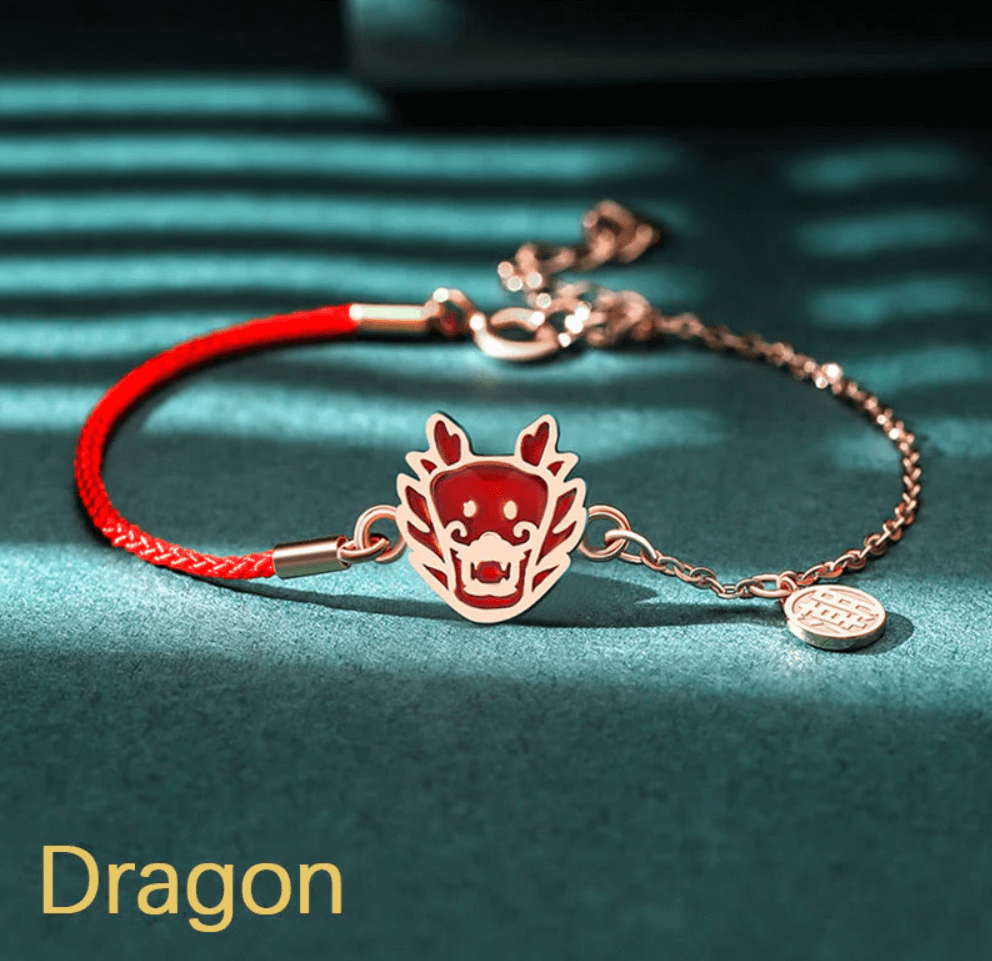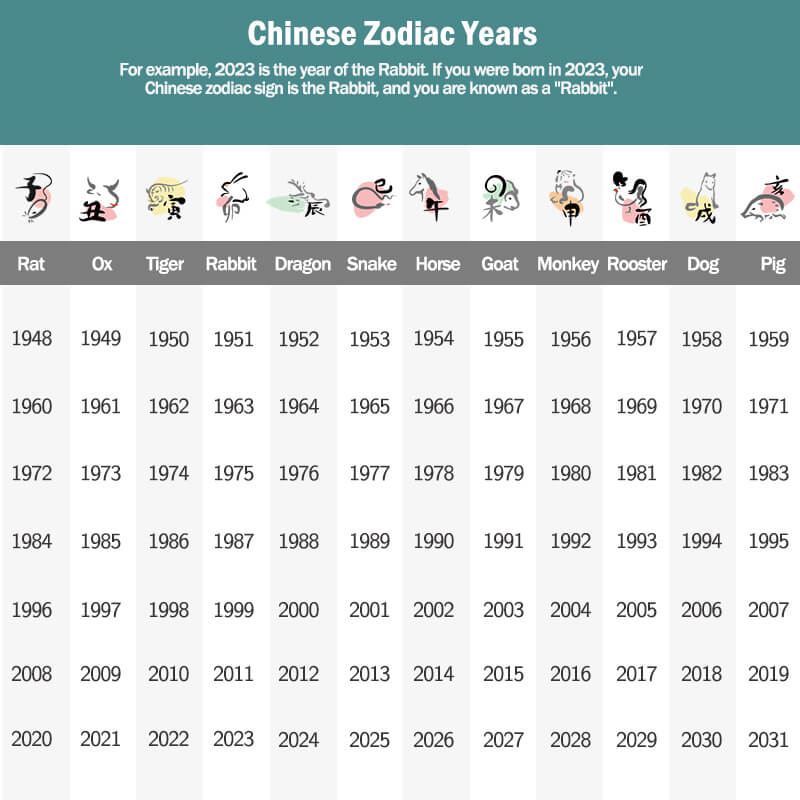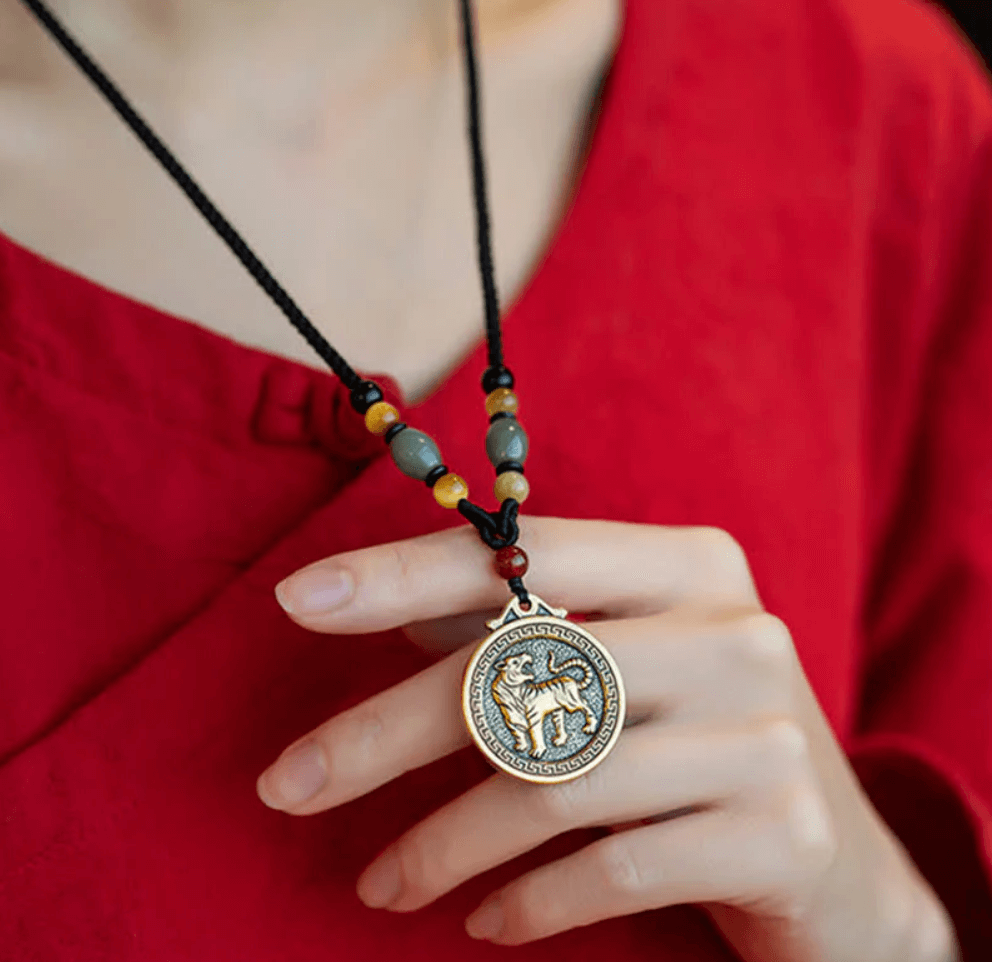Chinese Zodiac: A Cultural Code Inherited for Thousands of Years
2025-05-11
Introduction: The Cultural Underpinnings of the 12 Chinese Zodiac Signs
The Chinese Zodiac, as an important part of traditional Chinese culture, carries thousands of years of history and wisdom. It is not only a way of dating, but also contains people's understanding of nature, fate and life. Zodiac culture is deeply rooted in Chinese people's lives, influencing many aspects such as marriage, naming and feng shui.
The Chinese Zodiac, as an important part of traditional Chinese culture, carries thousands of years of history and wisdom. It is not only a way of dating, but also contains people's understanding of nature, fate and life. Zodiac culture is deeply rooted in Chinese people's lives, influencing many aspects such as marriage, naming and feng shui.
With the development of the times, the Chinese zodiac is no longer limited to traditional folklore, but has been revitalized in various artistic forms, of which zodiac jewelry is one of the most popular ways of expression. Whether it is a delicate gold pendant, an elegant jade bracelet, or a fashionable diamond ring, Chinese Zodiac jewelry has become a treasured item for people to wear, collect and give with its unique cultural charm and aesthetic value.
I. Origin and Legend of the Chinese Zodiac
The Chinese Zodiac, also known as the “phases of the genus”, is a very distinctive way of dating in traditional Chinese culture. It uses twelve animals to represent the year, and the cycle repeats itself every twelve years.
Legend of Origin: According to a folktale, the order of the twelve Chinese zodiac signs was determined by an animal race or selection by the Jade Emperor, with the mouse taking first place by virtue of its resourcefulness and the pig coming in last due to its laziness.

II. Animals of the Chinese Zodiac and their symbolism
Each animal of the Chinese zodiac has unique character traits and cultural symbols
1.Mouse (子) - smart and intelligent
I. Origin and Legend of the Chinese Zodiac
The Chinese Zodiac, also known as the “phases of the genus”, is a very distinctive way of dating in traditional Chinese culture. It uses twelve animals to represent the year, and the cycle repeats itself every twelve years.
Legend of Origin: According to a folktale, the order of the twelve Chinese zodiac signs was determined by an animal race or selection by the Jade Emperor, with the mouse taking first place by virtue of its resourcefulness and the pig coming in last due to its laziness.

II. Animals of the Chinese Zodiac and their symbolism
Each animal of the Chinese zodiac has unique character traits and cultural symbols
1.Mouse (子) - smart and intelligent
Symbolizes: intelligence, agility, adaptability
Character traits: Rat people are usually smart and flexible, good at socializing, but sometimes too shrewd and easy to count gains and losses.
Folklore: “The rat bites the sky to open up”. Legend has it that the rat bites through chaos and brings light, so the rat also symbolizes the spirit of pioneering.
2.Ox (丑) - hardworking and pragmatic
2.Ox (丑) - hardworking and pragmatic
Symbolizes: hardworking, tough, down-to-earth
Character traits: The Ox is steady and serious, but sometimes stubborn and does not change his mind easily.
Cultural symbolism: The Ox has a high status in Chinese agricultural society, symbolizing a good harvest and strength.
3.Tiger (寅) - courageous and majestic
3.Tiger (寅) - courageous and majestic
Symbolizes: courage, strength, authority
Character traits: Tiger people are usually confident and decisive, with leadership skills, but are quick-tempered and impulsive.
Folk Beliefs: The Tiger is the king of all beasts. Ancient people believed that the Tiger can drive away evil spirits, and often used tiger-shaped jewelry to bless their children.
4.Rabbit (卯) - gentle and dexterous
4.Rabbit (卯) - gentle and dexterous
Symbolizes: gentleness, caution, agility
Character traits: Rabbits are delicate and good at reading people, but sometimes they are too cautious and lack the spirit of adventure.
Myth and Legend: The Jade Rabbit in the Moon Palace pounding medicine symbolizes longevity and good fortune.
5.Dragon (辰) - Honorable and Mysterious
5.Dragon (辰) - Honorable and Mysterious
Symbolizes: power, good fortune, extraordinary temperament
Character traits: The Dragon is usually confident and ambitious, but sometimes proud and not easy to listen to others.
Cultural status: The dragon is the totem of the Chinese nation, and the emperor is known as the “True Dragon Son of Heaven”, symbolizing supreme authority.
6.Snake (巳) - Deep Wisdom
6.Snake (巳) - Deep Wisdom
Symbolizes: wisdom, calmness, mystery
Character traits: The Snake is quick-witted and insightful, but sometimes suspicious and not easy to trust others.
Folklore: The snake is called the “Little Dragon”, signifying wisdom and transformation, such as the White Snake in the White Snake Tale.
7.Horse (午) - Spirited and free
7.Horse (午) - Spirited and free
Symbolizes: vitality, aggressiveness, freedom
Character traits: Horse people are enthusiastic and cheerful, strong in action, but sometimes lack patience and are prone to give up halfway.
Historical allusion: The “Thousand Mile Horse” is a metaphor for talents, symbolizing the career take-off.
8.Sheep (未) - gentle and peaceful
8.Sheep (未) - gentle and peaceful
Symbolizes: kindness, gentleness, good fortune
Character traits: The Goat is soft and compassionate, but sometimes indecisive and dependent.
Auspicious Symbol: “Yang” in “San Yang Kai Tai” symbolizes good luck.
9.Monkey (申) - witty and lively
9.Monkey (申) - witty and lively
Symbol: Intelligence, flexibility, humor
Character traits: Monkeys are flexible and innovative, but sometimes mischievous and not steady enough.
Cultural image: The Monkey King in Journey to the West is the embodiment of wit and bravery.
10.Chicken (酉) - Promise Keeping and Punctuality
10.Chicken (酉) - Promise Keeping and Punctuality
Symbolizes: trustworthiness, diligence, good fortune
Character traits: The Rooster is conscientious and pays attention to details, but is sometimes too picky and prone to arguments.
Folk Beliefs: The rooster crows at dawn, symbolizing light dispersing darkness, and the ancients believed that the rooster could ward off evil spirits.
11.Dog(戌) - Loyal and Reliable
11.Dog(戌) - Loyal and Reliable
Symbols: Loyalty, bravery, guardianship
Character traits: The Dog is sentimental and responsible, but sometimes too stubborn and unchanging.
Cultural implication: The Dog is the most faithful friend of mankind, symbolizing honesty and friendship.
12.Pig (亥) - Full of Blessings
12.Pig (亥) - Full of Blessings
Symbolizes: wealth, open-mindedness and good fortune
Character traits: Pig people are optimistic and cheerful, treat people sincerely, but sometimes lazy and lack planning.
Auspicious Symbol: Pig represents wealth in traditional culture. In ancient times, “pig” and “pearl” harmonize, symbolizing wealth and prosperity.
Ⅲ.Chinese Zodiac Signs corresponding to the year of birth

Ⅳ.Zodiac jewelry wear and collection
Ⅲ.Chinese Zodiac Signs corresponding to the year of birth

Ⅳ.Zodiac jewelry wear and collection
Wear in the year of birth: People believe that wearing jewelry of their own zodiac sign can bring good luck and avoid bad luck.
As a gift: Giving to friends and relatives means blessing and care.
Collector's value: Chinese zodiac jewelry with famous design and rare material has appreciation potential.

Conclusion: The Chinese Zodiac, an Eternal Cultural Symbol

Conclusion: The Chinese Zodiac, an Eternal Cultural Symbol
The Chinese Zodiac is not only a way of dating, but also a unique Chinese understanding of nature, life and destiny. It is a blend of mythology, calendar, folklore and philosophy, and has become an important symbol of Chinese culture. Whether it is the stories told by the elderly or the zodiac jewelry worn by modern people, the twelve zodiac signs have always accompanied Chinese people in their lives, conveying good luck and blessings.
Zodiac reincarnation, culture is eternal.

